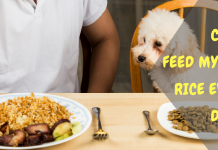Welcoming a new puppy into your home is a joyous occasion, filled with playful antics, wagging tails, and boundless energy. As a new pet owner, you’re embarking on an exciting journey that promises unconditional love and companionship. However, this new adventure also comes with the important responsibility of ensuring your puppy grows up healthy and strong. Understanding the best health practices for your furry friend is crucial in laying a foundation for a happy and thriving life together. In this article, we’ll guide you through essential tips and practices that every new puppy parent should know. From nutrition and vaccinations to exercise and grooming, we’re here to help you navigate the early stages of your puppy’s life with warmth and confidence, ensuring your new companion gets the best start possible.
Creating a Safe and Nurturing Environment for Your Puppy
Establishing a haven for your puppy is crucial for their development and well-being. Begin by designating a specific area in your home where your furry friend can feel secure and at ease. Puppy-proofing this space is essential—remove any hazardous items like electrical cords, toxic plants, and small objects that could be swallowed. Ensure the area is enriched with stimulating toys and a comfortable bed to foster both mental and physical growth.
Creating a nurturing environment extends beyond the physical space. Consistent routines help puppies feel safe and build trust. Develop a daily schedule that includes regular feeding times, bathroom breaks, and play sessions. Socialization is also key; introduce your puppy to a variety of experiences, people, and other animals in a controlled manner to build their confidence. Remember to shower them with positive reinforcement for good behavior, using treats and affection to encourage their progress. This balanced approach lays the foundation for a healthy, happy life with your new companion.

Essential Nutrition Tips for a Growing Puppy
Welcoming a new puppy into your home is an exciting journey filled with wagging tails and boundless energy. To ensure your furry friend grows up healthy and strong, it’s crucial to focus on their nutrition. Puppies have unique dietary needs that differ from adult dogs, requiring a well-balanced diet that supports their rapid growth and development. Here are some essential tips to guide you:
- Choose High-Quality Puppy Food: Opt for commercial puppy food that meets the AAFCO (Association of American Feed Control Officials) nutritional standards. These foods are specifically formulated to support a puppy’s growth, providing the right balance of proteins, fats, and carbohydrates.
- Mind the Portions: Overfeeding can lead to obesity and developmental issues. Follow the feeding guidelines on the puppy food packaging, and adjust based on your vet’s recommendations as your puppy grows.
- Incorporate Fresh Water: Always ensure your puppy has access to fresh, clean water. Hydration is key for their digestion and overall health.
- Monitor Treat Intake: While training treats are essential for learning new tricks, they should only make up a small portion of your puppy’s daily caloric intake. Opt for healthy, low-calorie options when possible.
- Consult Your Veterinarian: Regular check-ups are vital. Your vet can offer personalized dietary advice based on your puppy’s breed, size, and health status.
By focusing on these nutritional principles, you can help lay a strong foundation for your puppy’s lifelong health and happiness.
Building a Routine: Exercise and Play for a Happy, Healthy Puppy
Establishing a regular routine for your puppy is essential for their overall well-being. Puppies thrive on consistency, and a well-structured schedule can help them feel secure and happy. Exercise and play are crucial components of this routine, providing mental stimulation and physical fitness. Aim for activities that match your puppy’s energy level and breed characteristics. Here are some ideas to get you started:
- Morning Walks: Begin the day with a brisk walk to expend some of that morning energy. This is an excellent opportunity for your puppy to explore and socialize.
- Interactive Toys: Use puzzle toys or treat dispensers to engage your puppy’s mind while giving you a little break.
- Training Sessions: Short, fun training sessions can be a great way to bond and teach basic commands. Keep them light-hearted and rewarding.
- Evening Playtime: Set aside time for a game of fetch or tug-of-war, helping to burn off any remaining energy before bedtime.
Remember, consistency is key. By incorporating these activities into your daily routine, you’ll not only ensure a happy, healthy puppy but also lay the groundwork for a well-adjusted adult dog.
















